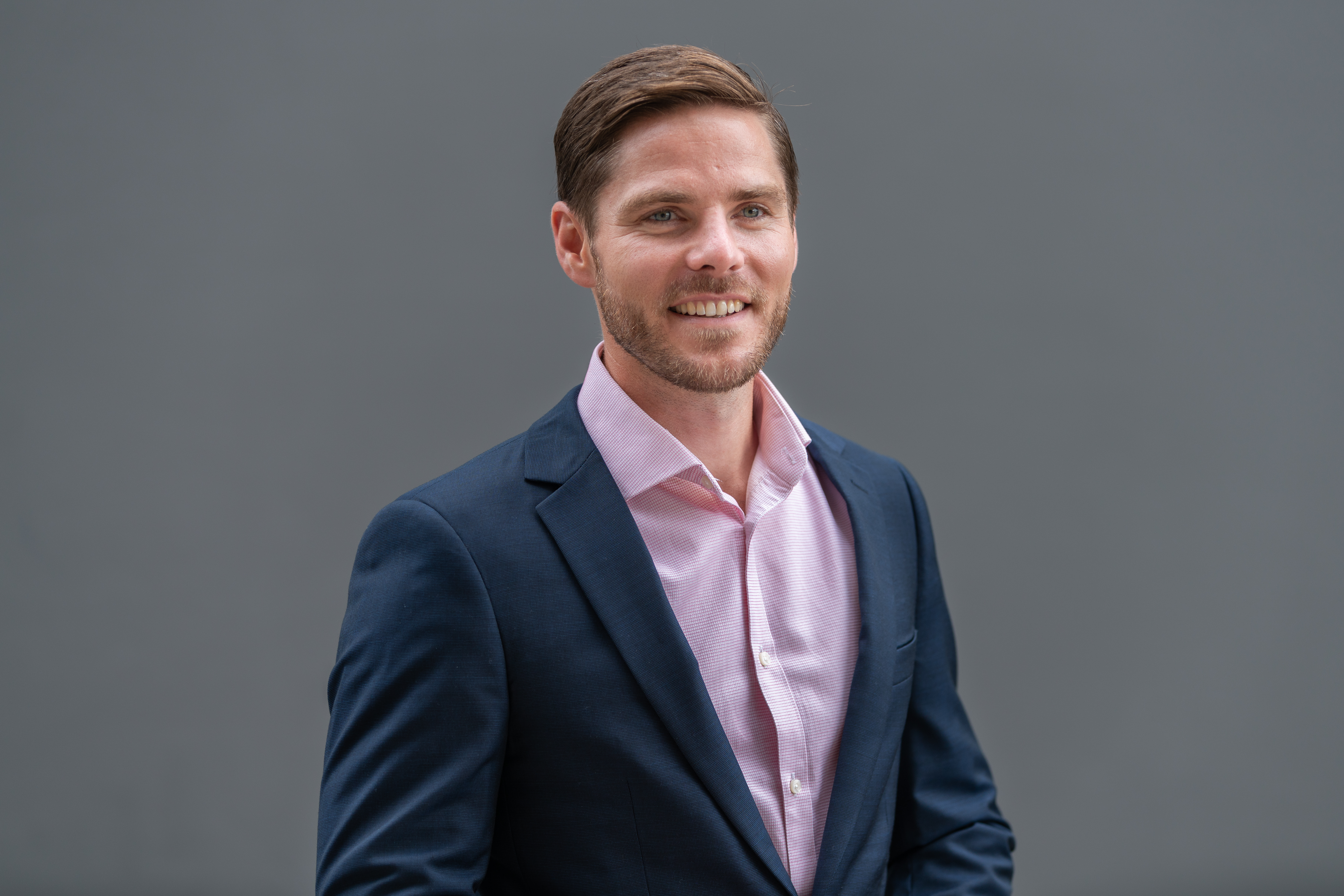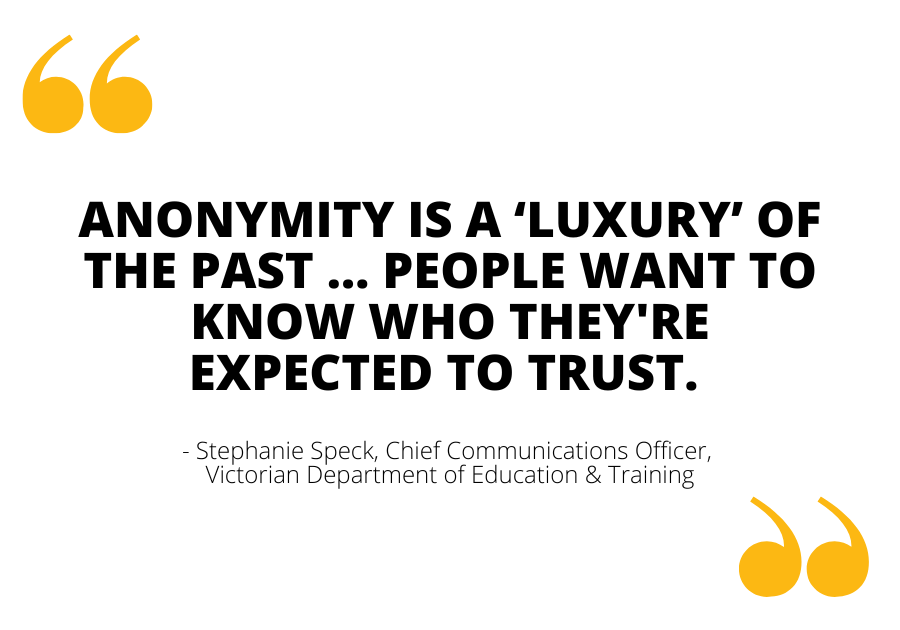As citizens increasingly seek to know the people behind the public sector, what do leaders stand to gain by leaning in and participating individually online? How should their voice and efforts complement those agencies they represent? And how can they safely navigate the fine line between personal and professional on social media?
Propel MD, Roger Christie recently hosted a Q&A discussion at the Digital Government Festival with Stephanie Speck, Chief Communications Officer, Victorian Department of Education & Training and David Pembroke, Founder & CEO of the contentgroup addressing these questions and more. Their practical advice, insights and examples are so relevant for anyone working in communications or advising leadership in the public sector.
Here is a snapshot of their conversation honing in on a few key takeaways to help public sector leaders - and their advisors - thrive in the online world. We're sure you’ll get value from it.
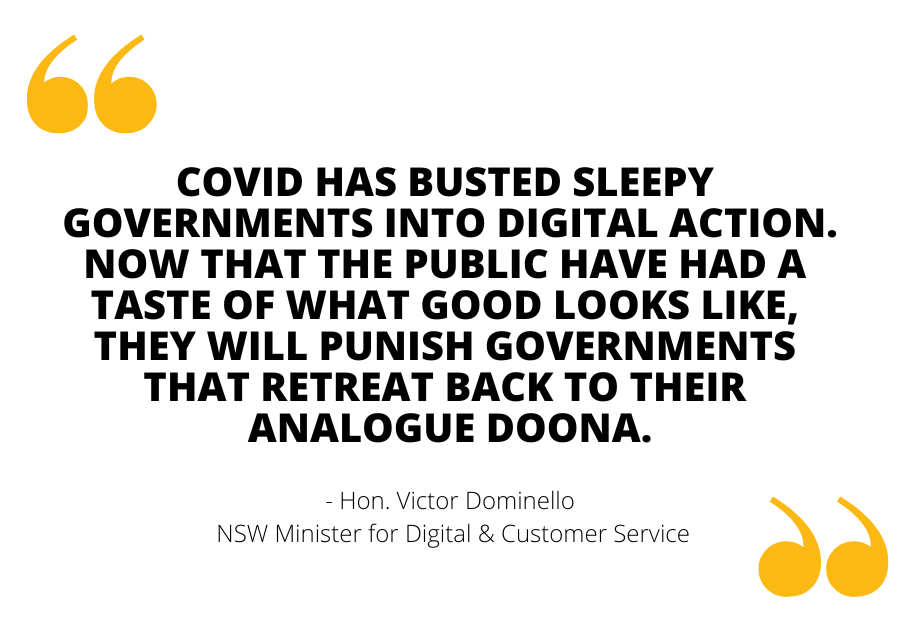
Roger Christie, Propel (RC): Do you agree citizens will punish ‘analogue’ governments?
Stephanie Speck, Dept. Education & Training (SS): I do believe that the public punish analogue governments and I believe we’re seeing this right now. The Edelman Trust Barometer reported this year that 61% of Australians think the government is actively trying to mislead them, conspiring to cause mischief and disturbance amongst the public. We’re living through this age now where there is a confidence gap between the public and the government institutions or bureaucracy.
David Pembroke, contentgroup (DP): In the federal election just gone, the two major parties recorded their lowest primary votes ever. And so when you talk about punishment, the punishment has been handed out. The Federal Labor Party had the good fortune to have enough of the votes captured in the right places to form a majority government. But you can bet your bottom dollar that warning has been well and truly heard. Engaged, thoughtful, local candidates who are well financed, well organised with very, very strong digital footprints will threaten the Labor Party at the next election.
RC: Edelman very much calls out the role of the individual in stepping up and speaking out online (as does Brunswick Group’s Connected Leadership Report). What do public sector leaders, agencies and society at large lose if anonymity is the preferred approach?
DP: They lose access to this wonderful treasure trove of public sector work. I know in my daily work here at contentgroup, the brilliant work done in so many different parts of the federal bureaucracy never ceases to amaze me. What we’re losing is the insight and the understanding and the awareness of where the taxpayer’s dollars are being invested.
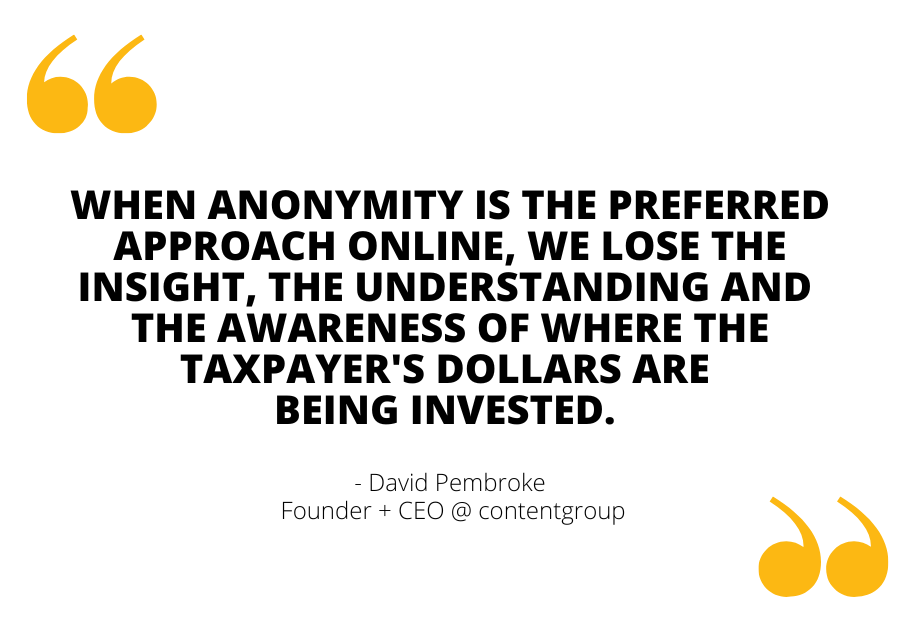
I can give you a simple example. At the moment, we’re working on a project for the Federal Department of Agriculture around the Future Drought Fund. It’s about future drought resilience. We’ve now filmed a number of these projects around Australia and they’re breathtaking. When you have a look at the work that’s being done, when you’re seeing the collaboration between academia, industry, local government, state government and federal government working on common problems for the benefit of the community – it’s a no brainer. They are the stories that we need to surface.
SS: We want our information ‘personal’. We want to know the person who’s giving it to us because, in a fractured society – and I think societies have fractured through COVID-19 – we want to be able to get the news that matters to us from the people we trust. Anonymity is a ‘luxury’ of the past – people want to know who they’re expected to trust.
I think good leadership is always visible. When we see bureaucrats on social media, it’s because they have a duty to the public, through their service to improve lives.
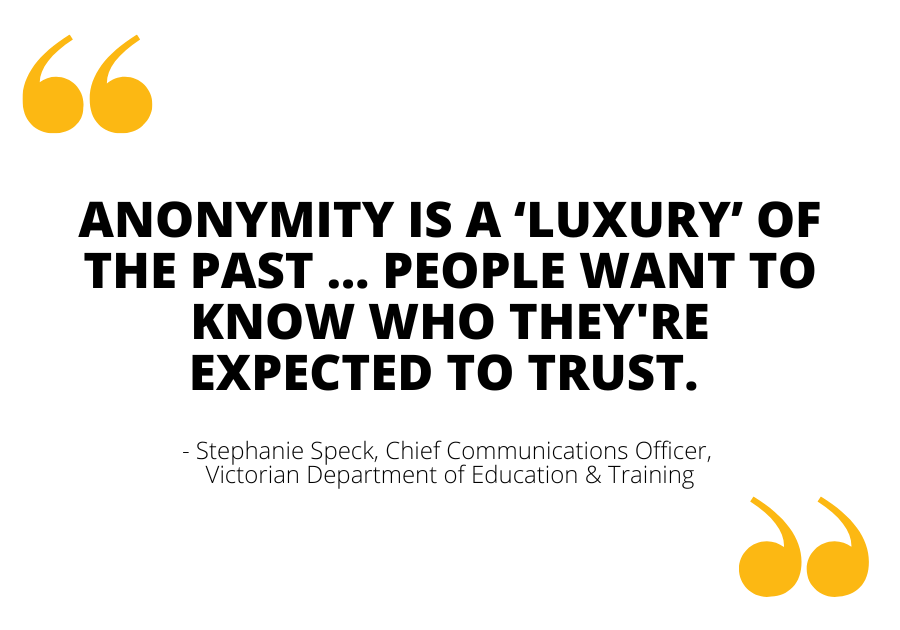
RC: What are some of the common things that hold public sector agencies and leaders back from participating online?
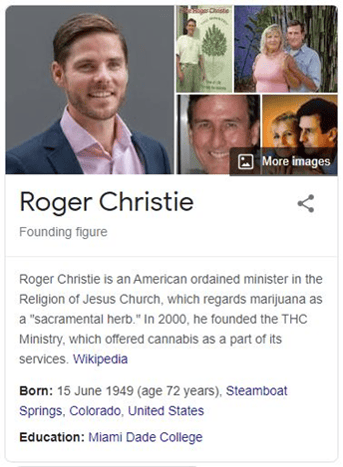
SS: I think it’s risk – and there’s different varieties of risk. You have your ‘garden variety’ of risk, which is ‘I just don’t know how to do it’.
It’s the reality that many secretaries of departments belong to an older age group. They’ve climbed the career ladder and they haven’t been brought up with the diet of Googling ourselves and, in your case Roger, finding that you’re a 72 year old hippie.
(Read more about Roge’s self Googling experience here:
I have a confession to make ..)
Then I think there’s another risk: fear. Which is, ‘If I do it, I won’t be good enough’, or maybe, ‘I’ll do it the wrong way and cause offence’. When I’ve spoken to public sector leaders around the world, I say: ‘Let’s get the why right first. We’re not just going to open a channel and start posting. Let’s really investigate why you’re here and in this space.’
Be very clear about your voice and what your role is in that space. Your role is not to be a cheer squad for government. Your role as a public sector leader is to show how public administration is best served by having a conversation in this space.
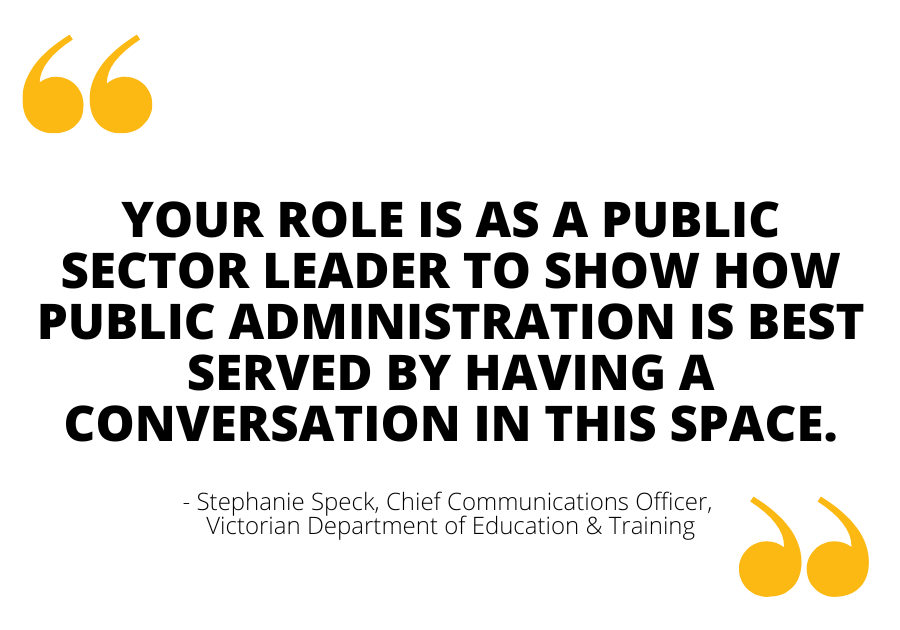
RC: What are some of the really practical steps that people can do to ensure they get off on the right foot?
DP: Download the apps, find the places that you want to participate in and loiter. Loiter until you feel comfortable. Observe. Be present. You don’t have to jump in straight away. You don’t have to have a million things to say. I think it’s the advice that you always give to people, Roge – Listen first, and be patient. Because, it’s a long game. You know this isn’t going anywhere; it’s not going to finish anytime soon.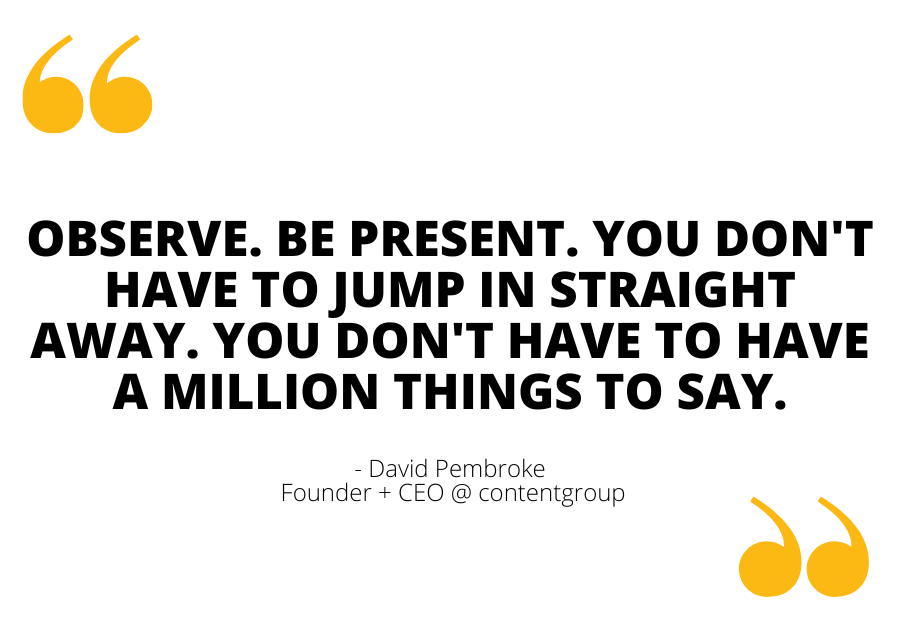
You have to give some thought to how you are going to participate, but don’t feel like you have to come out of the gates at 1,000,000 miles an hour and give everyone a comment and share and like it, because you won’t have time to get other work done.
SS: When it comes to practical steps for people who are advising upwards and trying to convince people to get started online, my advice is to know your boundaries. Know the specific social media codes that govern how you function in the public space, identify your why, and then choose your themes. That will help activate that ‘why’ and link value with business objectives, so your leader will make decisions based on what is good for the department.
You’ve got to be able to demonstrate why them being visible and leading in a digital environment is good for the department and clearly demonstrate other examples of good practice. People will wade in when they feel safe and they can see other colleagues and compatriots doing the same thing.
RC: Where should people be going to get the information they need to help them take those first steps? Examples of people like Amanda Yeates, Mike Kaiser, Amy Brown, and the leaders in the NSW Department of Customer Service can help leaders get a couple of steps ahead and not have to go through the same growing pains as everyone else.
SS: The Department of Customer Service is an incredible example. Emma Hogan is saying, ‘I’m here in this space, and I’m watching. I’ve heard you and I expect my department to act now and act quickly.’ That’s an extraordinary example for a leader to set.
It not only empowers her staff to think that’s a good way to act; to be present, to register issues, and then to do something. But she’s setting an expectation in terms of responsiveness and fixing issues that the public is encountering.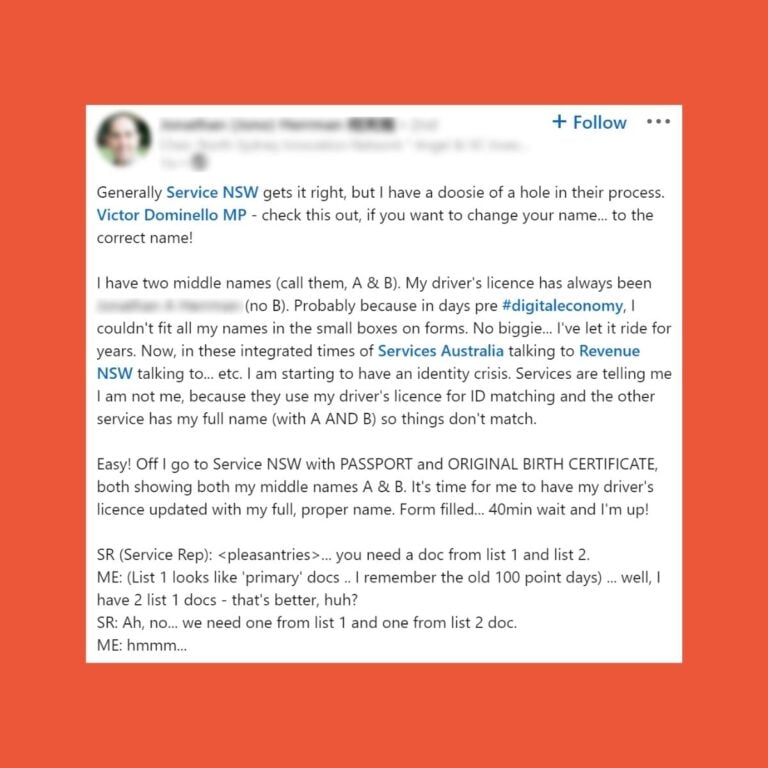
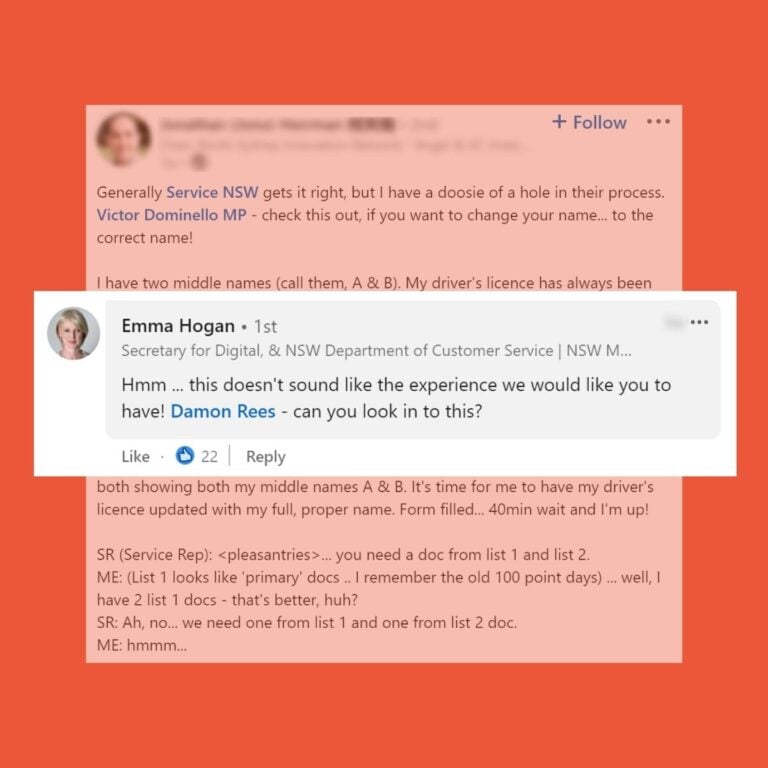
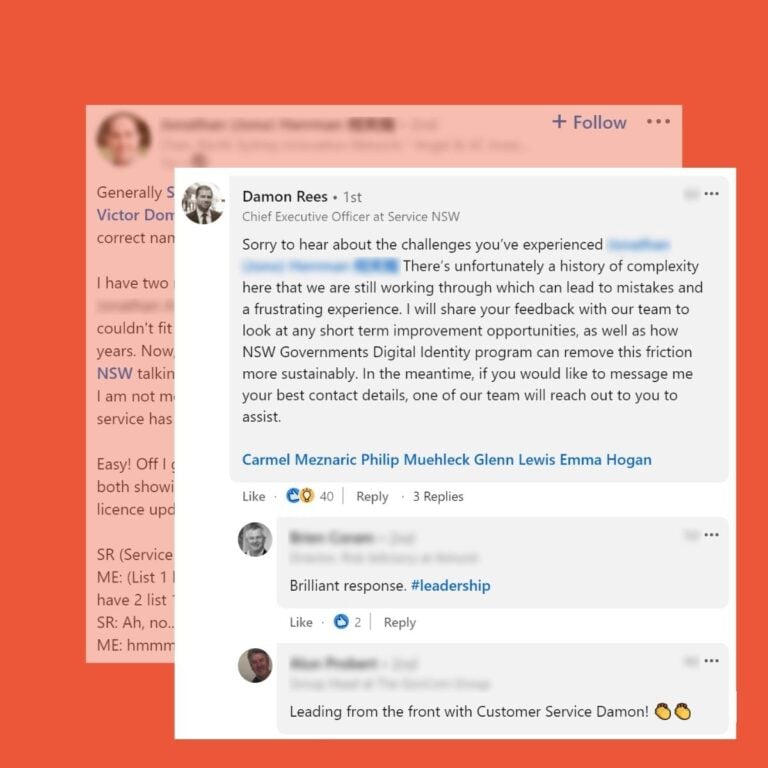
DP: Australian eSafety Commissioner Julie Inman – Grant is also very effective because she’s trying to influence a number of people, not just here in Australia but around the world. She does a good job in helping you to understand the work that they’re doing, why they’re doing it, where their priority is pointing you to different places where you can learn a bit more.
About the Author
Roger Christie is the Founder & Managing Director of Propel – a multi award-winning consultancy that helps leaders and organisations build purposeful digital brands. For more than fifteen years, Roger has partnered with government, corporate and NGO ...

